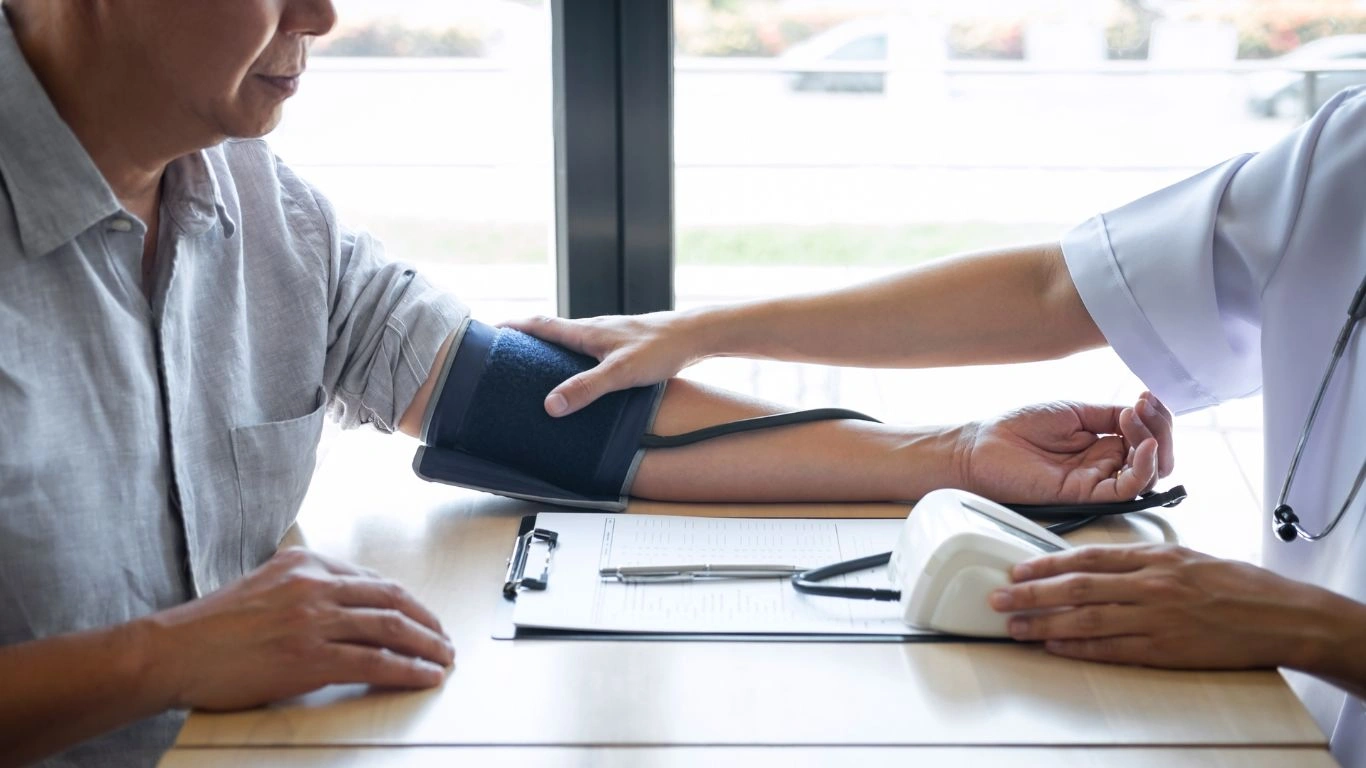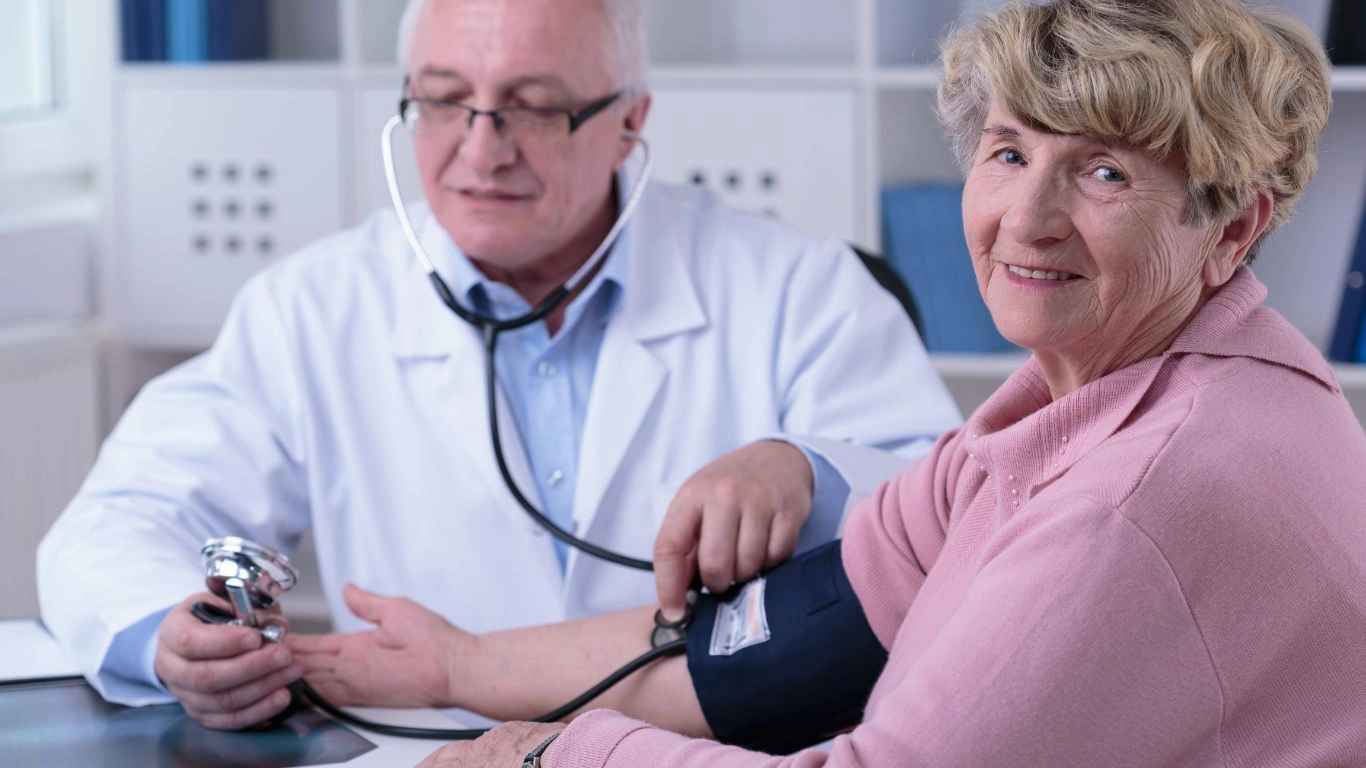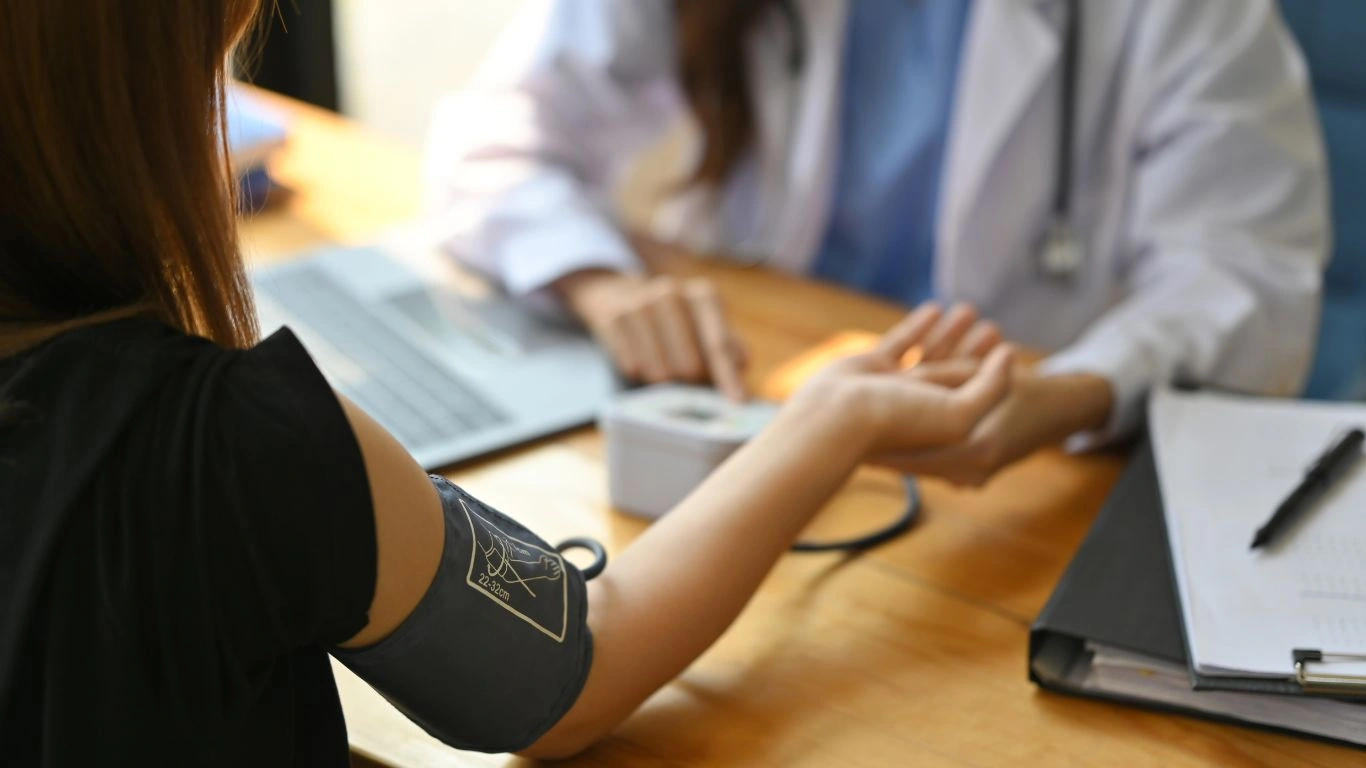The Link Between Cholesterol and Blood Pressure – What You Need to Know
Wondering how cholesterol and blood pressure are connected? You’re not alone! These two are key factors for your heart health. High cholesterol and high blood pressure can have a big impact on your cardiovascular system. Let’s dive into the link between cholesterol and blood pressure, how they affect each other, and what you can do to keep both in check.
Cholesterol and Blood Pressure: The Connection
You’ve probably heard about cholesterol and blood pressure, but have you ever thought about how the two are related? Here’s the thing: they’re both major players when it comes to heart health. So, if one’s off, it can mess with the other. Let’s break it down in a way that makes sense. Cholesterol is a fatty substance found in your blood. Your body needs it for things like building cells, but too much of it—especially the bad kind, known as LDL cholesterol—can clog your arteries. Think of it like gunk building up in a pipe. Blood pressure, on the other hand, is the force of blood pushing against the walls of your blood vessels. High blood pressure (aka hypertension) means that force is too high, and over time, that can damage your arteries.  So, what happens when you’ve got both high cholesterol and high blood pressure? Well, it’s like a double whammy for your heart. Your arteries get both clogged (from cholesterol) and weakened (from high pressure). This combination can increase your risk of heart disease, stroke, and other cardiovascular issues. Not good, right?
So, what happens when you’ve got both high cholesterol and high blood pressure? Well, it’s like a double whammy for your heart. Your arteries get both clogged (from cholesterol) and weakened (from high pressure). This combination can increase your risk of heart disease, stroke, and other cardiovascular issues. Not good, right?
How Cholesterol Affects Blood Pressure
Okay, now that we know the basics, let’s get into the nitty-gritty. High cholesterol can directly affect your blood pressure by contributing to the narrowing and hardening of your arteries. When there’s plaque buildup in the arteries, it creates a kind of “traffic jam” for blood flow. Your heart has to work harder to push blood through those narrower paths, which means higher blood pressure. And when blood pressure is constantly high, it can lead to even more damage to your arteries. It’s like pushing harder and harder on a clogged pipe—it’s just not good for the system. Over time, this can cause more inflammation and even more plaque buildup, creating a vicious cycle. 
Managing Cholesterol and Blood Pressure: What You Can Do
So, what can you do to get both cholesterol and blood pressure under control? Well, it’s all about lifestyle changes, mainly:
1. Eat a Heart-Healthy Diet
If you want to keep both cholesterol and blood pressure in check, the food you eat plays a huge role. Think less processed foods, fried stuff, and sugary snacks. Instead, load up on fruits, veggies, whole grains, and healthy fats. The Mediterranean diet, for example, is great for both lowering cholesterol and managing blood pressure. It’s all about those good fats (like olive oil) and omega-3s from fish.
2. Get Active
Exercise is one of the best ways to manage both cholesterol and blood pressure. You don’t have to go hardcore; even just a daily 30-minute walk can help lower your cholesterol and blood pressure. Plus, it helps keep your weight in check, which is another factor that plays into both.
3. Keep Your Weight in Check
Being overweight can make both your cholesterol and blood pressure levels spike, so keeping a healthy weight is key. This doesn’t mean you have to be a fitness guru—just aim for a healthy body mass index (BMI) and focus on sustainable habits.
4. Limit Salt and Sugar
Too much salt can raise your blood pressure, and sugar isn’t doing you any favors when it comes to cholesterol either. Read labels, limit processed foods, and cut back on sugary drinks.
5. Don’t Smoke and Limit Alcohol
Smoking is a major culprit when it comes to raising blood pressure, and it can also lower your good HDL cholesterol. Drinking too much alcohol can have a similar effect, so keeping it moderate (one drink per day for women, two for men) is a good rule of thumb.
6. Consider Medication (If Needed)
In some cases, lifestyle changes alone aren’t enough. Your doctor might prescribe medication to help manage cholesterol or blood pressure, or even both. Statins are commonly prescribed for high cholesterol, while there are a bunch of meds for blood pressure, too. Always follow your doctor’s advice here. 
The Role of Genetics in Cholesterol and Blood Pressure
Now, we can’t forget about genetics. While lifestyle choices are a big deal, your family history can also influence your cholesterol and blood pressure levels. If you have a family history of high blood pressure or cholesterol, you might be more likely to experience the same issues, so it’s important to get regular checkups.
Is It Really That Serious?
The short answer: yes. High cholesterol and high blood pressure don’t always show obvious symptoms, which is why they’re sometimes called “silent killers.” But over time, they can do a lot of damage to your heart and blood vessels, which is why it’s crucial to stay on top of them. Regular checkups and blood tests are key to knowing where you stand. If your cholesterol or blood pressure is high, the earlier you catch it, the better. A heart attack or stroke is a whole lot more preventable when you catch these issues early.
Conclusion
To wrap it up, cholesterol and blood pressure are two important factors that are closely linked to heart health. When one’s off, the other often is, too, and together they can significantly raise your risk of heart disease. But don’t worry—there’s plenty you can do to manage both. Eat a heart-healthy diet, get moving, watch your weight, and live a balanced lifestyle. And if your doctor prescribes medication, follow their advice. Your heart will thank you.
Appendices
FAQs
- Can high cholesterol cause high blood pressure? Yes, high cholesterol can contribute to high blood pressure by narrowing your arteries, making it harder for blood to flow.
- What are the first signs of high blood pressure? High blood pressure often has no symptoms, which is why it’s called the “silent killer.” Regular checkups are key to catching it early.
- How can I lower cholesterol naturally? Eat foods high in fiber, like oats, fruits, and vegetables, and avoid saturated fats. Exercise and maintaining a healthy weight also help.
- Does stress affect blood pressure? Yes, chronic stress can raise your blood pressure, so it’s important to manage stress through relaxation techniques like yoga or deep breathing.
- Can cholesterol medications help with blood pressure? No, cholesterol medications (like statins) focus on lowering cholesterol, but blood pressure medications are needed to manage hypertension.
References
- American Heart Association. (2023). “Cholesterol and Blood Pressure: What’s the Connection?” Read Article
- National Institutes of Health (NIH). (2024). “Managing Cholesterol and Blood Pressure Together.” Read Article
- World Health Organization. (2022). “The Impact of Cholesterol and Blood Pressure on Cardiovascular Disease.” Read Article
Disclaimer
The information provided in this article is for general informational purposes only and should not be considered as medical advice. Always consult with your healthcare provider for personalized recommendations.

Dr. Gwenna Aazee is a board-certified Internal Medicine Physician with a special focus on hypertension management, chronic disease prevention, and patient education. With years of experience in both clinical practice and medical writing, she’s passionate about turning evidence-based medicine into accessible, actionable advice. Through her work at Healthusias.com, Dr. Aazee empowers readers to take charge of their health with confidence and clarity. Off the clock, she enjoys deep dives into nutrition research, long walks with her rescue pup, and simplifying medical jargon one article at a time.







